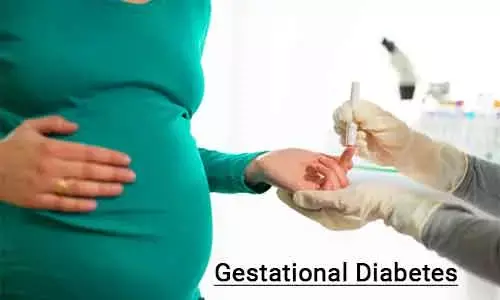- Home
- Medical news & Guidelines
- Anesthesiology
- Cardiology and CTVS
- Critical Care
- Dentistry
- Dermatology
- Diabetes and Endocrinology
- ENT
- Gastroenterology
- Medicine
- Nephrology
- Neurology
- Obstretics-Gynaecology
- Oncology
- Ophthalmology
- Orthopaedics
- Pediatrics-Neonatology
- Psychiatry
- Pulmonology
- Radiology
- Surgery
- Urology
- Laboratory Medicine
- Diet
- Nursing
- Paramedical
- Physiotherapy
- Health news
- Fact Check
- Bone Health Fact Check
- Brain Health Fact Check
- Cancer Related Fact Check
- Child Care Fact Check
- Dental and oral health fact check
- Diabetes and metabolic health fact check
- Diet and Nutrition Fact Check
- Eye and ENT Care Fact Check
- Fitness fact check
- Gut health fact check
- Heart health fact check
- Kidney health fact check
- Medical education fact check
- Men's health fact check
- Respiratory fact check
- Skin and hair care fact check
- Vaccine and Immunization fact check
- Women's health fact check
- AYUSH
- State News
- Andaman and Nicobar Islands
- Andhra Pradesh
- Arunachal Pradesh
- Assam
- Bihar
- Chandigarh
- Chattisgarh
- Dadra and Nagar Haveli
- Daman and Diu
- Delhi
- Goa
- Gujarat
- Haryana
- Himachal Pradesh
- Jammu & Kashmir
- Jharkhand
- Karnataka
- Kerala
- Ladakh
- Lakshadweep
- Madhya Pradesh
- Maharashtra
- Manipur
- Meghalaya
- Mizoram
- Nagaland
- Odisha
- Puducherry
- Punjab
- Rajasthan
- Sikkim
- Tamil Nadu
- Telangana
- Tripura
- Uttar Pradesh
- Uttrakhand
- West Bengal
- Medical Education
- Industry
Early screening for gestational diabetes in obese women doesn't improve perinatal outcomes

Researchers have found in a new study that early screening for gestational diabetes in obese women may not reduce the composite perinatal outcome. The study has appeared in the American journal of Obstetrics and Gynaecology.
Obesity now complicates about one-third of pregnancies, increasing the risk for gestational diabetes in over 1 million pregnancies each year, which in turn increases the risk for a multitude of perinatal complications including cesarean delivery, macrosomia, and pregnancy-induced hypertension.
American College of Obstetricians and Gynecologists had recommended early screening for gestational diabetes in obese women in 2013.However no studies demonstrate an improvement in perinatal outcomes with this strategy.
The researchers sought to determine whether early screening for gestational diabetes improves perinatal outcomes in obese women.
They performed randomized controlled trial comparing early gestational diabetes screening (14−20 weeks) to routine screening (24−28 weeks) in obese women (body mass index ≥30 kg/m 2) at 2 tertiary care centers in the United States.
They performed screening using a 50-g, 1-hour glucose challenge test followed by a 100-g, 3-hour glucose tolerance test if the initial screen was ≥135 mg/dL. Gestational diabetes was diagnosed using Carpenter−Coustan criteria. Women not diagnosed at 14 to 20 weeks were rescreened at 24 to 28 weeks. Exclusion criteria were pre-existing diabetes, major medical illness, bariatric surgery, and prior cesarean delivery. The primary outcome was a composite of macrosomia (>4000 g), primary cesarean delivery, hypertensive disease of pregnancy, shoulder dystocia, neonatal hyperbilirubinemia, and neonatal hypoglycemia (assessed within 48 hours of birth).
In all a total of 962 women were randomized, and outcomes were available for 922. Of these 922 women, 459 (49.8%) were assigned to early screen and 463 (50.2%) to routine screen. Baseline characteristics were balanced between groups. In the early screening group, 69 (15.0%; 95% confidence interval, 11.9−18.6%) were diagnosed with gestational diabetes: 29 (6.3%; 95% confidence interval, 4.3−8.9%) at <20 weeks and 40 (8.7%; 95% confidence interval, 6.3−11.7%) at >24 weeks. Of those randomized to routine screening, 56 (12.1%; 95% confidence interval, 9.3−15.4%) had gestational diabetes. Early screening did not reduce the incidence of the primary outcome (56.9% in the early screen versus 50.8% in the routine screen, P = .07; relative risk, 1.12; 95% confidence interval, 0.99−1.26).
Early screening for gestational diabetes in obese women did not reduce the composite perinatal outcome.
For further reference log on to:
DOI:https://doi.org/10.1016/j.ajog.2019.
Dr Kamal Kant Kohli-MBBS, DTCD- a chest specialist with more than 30 years of practice and a flair for writing clinical articles, Dr Kamal Kant Kohli joined Medical Dialogues as a Chief Editor of Medical News. Besides writing articles, as an editor, he proofreads and verifies all the medical content published on Medical Dialogues including those coming from journals, studies,medical conferences,guidelines etc. Email: drkohli@medicaldialogues.in. Contact no. 011-43720751


